People
Faculty and Senior Scientists
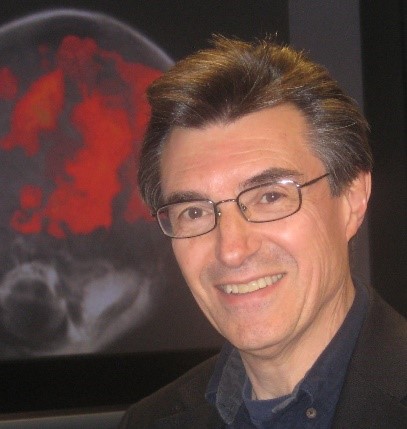 |
Marcel Just Ph.D.D.O. Hebb Professor of Psychology and the Center's Director. His current research develops and tests theories of how we neurally represent individual concepts and larger units of knowledge. The main basic approach applies machine learning and factor analysis to fMRI data. The two applications that are being explored are the use of altered concept representations to identify people with suicidal ideation and the learning of new technical concepts in work and college settings. He is pleased to be part of the rapidly advancing field of cognitive neuroimaging that has repeatedly and deeply enriched the understanding of mind and brain.  Selected Publications: CCBI publications list Selected Publications: CCBI publications list
Just, M. A., & Keller, T. A. (2019). Converging measures of neural change at the microstructural, informational, and cortical network levels in the hippocampus during the learning of the structure of organic compounds. Brain Structure and Function.
Download .pdf
Wang, J., Cherkassky, V. L., & Just, M. A. (2017). Predicting the brain activation pattern associated with the propositional content of a sentence: modeling neural representations of events and states. Human Brain Mapping, 38, 4865–4881. Download .pdf Yang, Y., Wang, J., Bailer, C., Cherkassky, V. L., & Just, M. A. (2017). Commonality of neural representations of sentences across languages: predicting brain activation during Portuguese sentence comprehension using an English-based model of brain function. NeuroImage, 146, 658-666. Download .pdf Mason, R. A., & Just, M. A. (2016). Neural representations of physics concepts. Psychological Science, 27, 904-913. Download .pdf |
 | |
 |
Robert Mason, Ph.D.is a Senior Research Psychologist. His current research explores the cognitive and neural mechanisms through which scientific concepts are learned. His broader research program focuses on the interaction of learning, language and the brain during the instructional process. He uses functional Magnetic Resonance Imaging (fMRI) to study cortical networks that subserve reading and learning. He has studied these networks in English speakers, bilinguals and individuals with autism. His Ph.D. is from the University of Massachusetts at Amherst and he previously worked at the Learning Research & Development Center at the University of Pittsburgh.  Selected Publications: CCBI publications list Selected Publications: CCBI publications list
Mason, R. A., & Just, M. A. (2016). Neural representations of physics concepts. Psychological Science, 27, 904-913.
Download .pdf
Mason, R. A., & Just, M. A. (2015). Physics instruction induces changes in neural knowledge representation during successive stages of learning. NeuroImage, 111, 36-48. Download .pdf Mason, R. A., Prat, C. S., & Just, M. A. (2014). Neurocognitive brain response to transient impairment of Wernicke's area. Cerebral Cortex; 24, 1474-1484. Download .pdf |
 | |
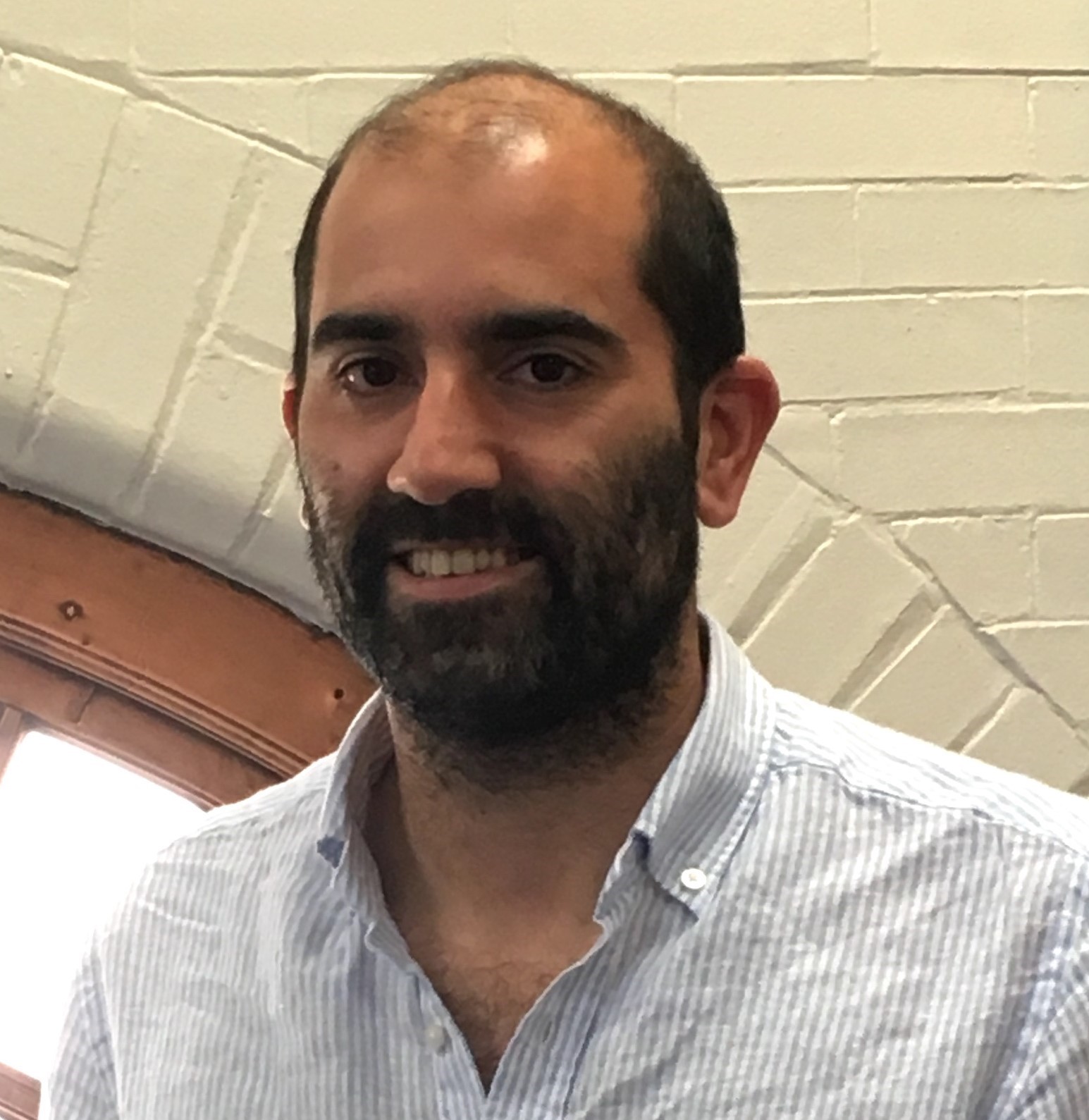 |
Bruno Leitaois visiting the Center for Cognitive Brain Imaging (CCBI) this fall, through the CMU Portugal program. He is a post-doctoral researcher at the Institute for Nuclear Sciences Applied to Health (ICNAS) at the University of Coimbra, Portugal. At the CCBI, he is exploring data-driven, machine-learning approaches to analyze real-time functional Magnetic Resonance Imaging (rt-fMRI) neurofeedback data. He is also exploring functional connectivity patterns associated with neurofeedback paradigms. His broader research interests include neurorehabilitation, reward mechanisms and network controllability. |
 | |
 |
Vladimir Cherkasskyis a Scientific Specialist. He performs complex data analyses and develops methods and software packages for fMRI data analysis and machine learning. He also supervises all software/hardware development for the CCBI and performs Unix system administration.  Selected Publications: CCBI publications list Selected Publications: CCBI publications list
Cherkassky, V. L., Kana, R. K., Keller, T. A., & Just, M. A. (2006). Functional connectivity in a baseline resting-state network in autism. NeuroReport, 17, 1687-1690.
Download .pdf
Wang, J., Cherkassky, V. L., & Just, M. A. (2017). Predicting the brain activation pattern associated with the propositional content of a sentence: modeling neural representations of events and states. Human Brain Mapping, 38, 4865–4881. Download .pdf |
 | |
Graduate Student
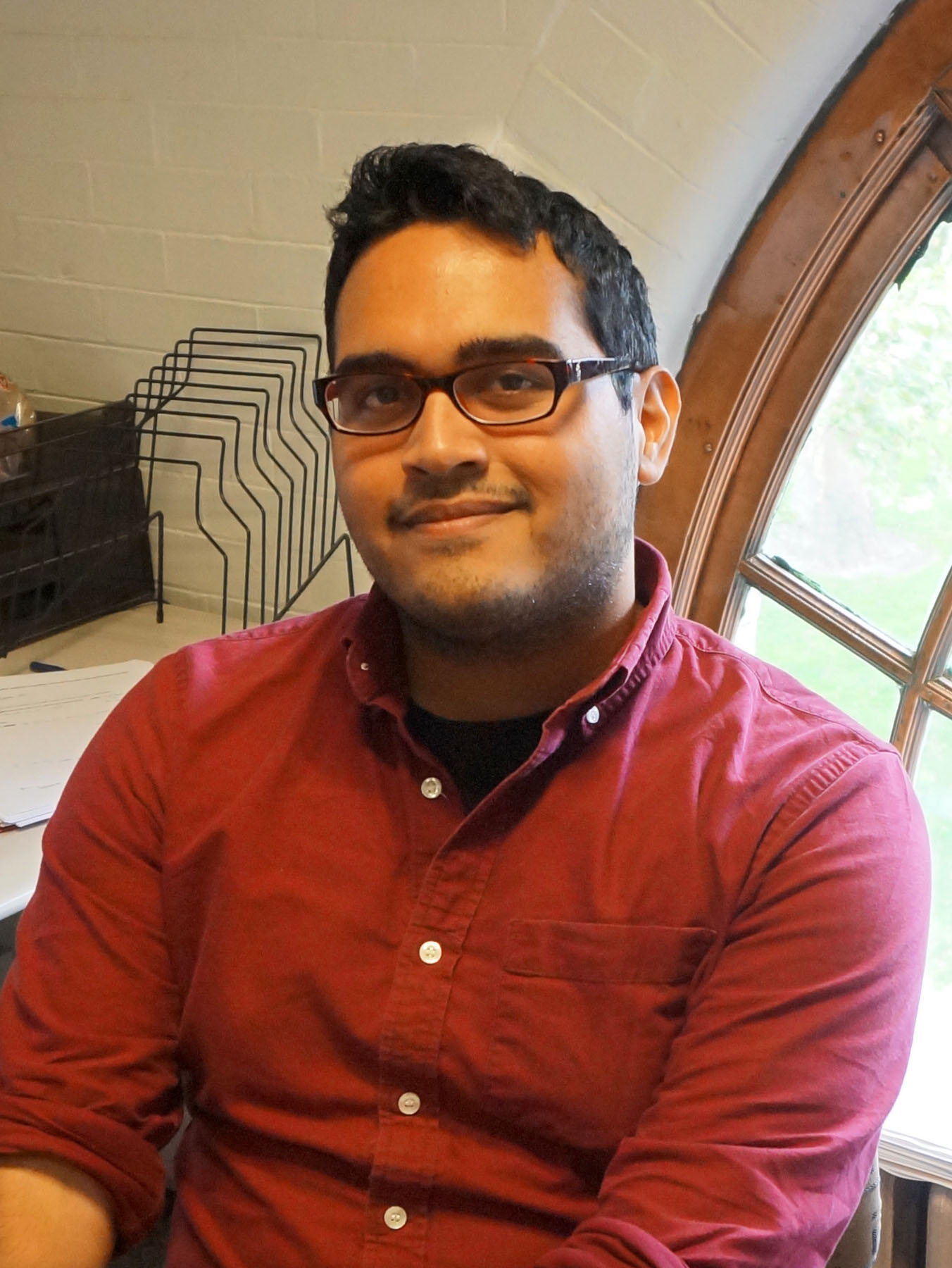 |
Robert Vargasgraduated from the University of Texas at San Antonio with a B.A. in Psychology. He went on to do research at the University of Texas Health Science Center at San Antonio developing causal modeling techniques using electrocorticographic data. He is interested in understanding the neural structures behind conceptual representations and how they underpin language by utilizing multivariate techniques on fMRI data. One of his projects focuses on the neural representation of abstract concepts.  Selected Publications: CCBI publications list Selected Publications: CCBI publications list
Vargas, R., & Just, M. A. (2019). Neural representations of abstract concepts: Identifying underlying neurosemantic dimensions. Cerebral Cortex.
Wang, J., Cherkassky, V. L., Yang, Y., Chang, K. K., Vargas, R., Diana, N., Just, M.A. (2016). Identifying thematic roles from neural representations measured by functional magnetic resonance imaging. Cognitive Neuropsychology, 1-8. (Special Issue on Conceptual Knowledge Representation) Price, L.R., Vargas, R., Behroosmand, R., Parkinson, A.L., Larson C.R., Greenlee, J.D.W., & Robin, D.A. (2016) Dynamic Connectivity Mapping of Electrocorticographic Data using Bayesian Differential Structural Equation Modeling. Biometrics and Biostatistics International Journal, 4, 144-158. Fernandez, E., Vargas, R., Mahometa, M., Ramamurthy, S. & Boyle, G.J. (2012). Descriptors of Pain Sensation: A Dual Hierarchical Model of Latent Structure. The Journal of Pain, 13, 532-536. |

Collaborators
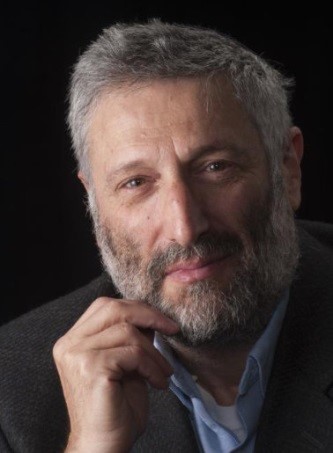 |
David A. Brentis the Endowed Chair in Suicide Studies and Professor of Psychiatry, Pediatrics, Epidemiology, and Clinical and Translational Science at the University of Pittsburgh School of Medicine. He brings outstanding expertise in child and adolescent psychiatry and suicidology. His research focuses on the assessment, causes, and prevention of young adult suicide and suicidal behavior. He has been a close CCBI collaborator on the neurosemantic assessment of concept alterations associated with suicidal ideation. |
 | |
 |
Jeffrey CohnJeffrey Cohn is Professor of Psychology, Psychiatry, and Intelligent Systems at the University of Pittsburgh and Adjunct Professor of Computer Science at the Robotics Institute at Carnegie Mellon. He leads interdisciplinary and inter-institutional efforts to develop advanced methods of automatic analysis and synthesis of facial expression and prosody and applies those tools to research in human emotion, social development, nonverbal communication, psychopathology, and biomedicine. |
 | |
 |
Tim Keller, Ph.D.is a Senior Research Associate with expertise in fMRI. He is working on all of the fMRI projects. He has just the right computational skills to deal with the intensive data processing associated with fMRI data, as well as neuroanatomical knowledge for data interpretation. His substantive interests are in working memory, language, and spatial thinking. His Ph.D. is from the University of Missouri. He was previously an NIMH Post-Doctoral Fellow for two years.  Selected CCBI Publications: CCBI publications list Selected CCBI Publications: CCBI publications list
Keller, T. A., Kana, R. K., & Just, M. A. (in press). A developmental study of the structural integrity of white matter in autism. NeuroReport.
Just, M. A., Cherkassky, V. L., Keller, T. A., Minshew, N. J. (2004). Cortical activation and synchronization during sentence comprehension in high-functioning autism: Evidence of underconnectivity. Brain, 127, 1811-1821. Just, M. A., Newman, S. D., Keller, T. A., McEleney, A., & Carpenter, P. A. (2004). Imagery in sentence comprehension: An fMRI study. NeuroImage, 21, 112-124. Keller, T. A., Carpenter, P. A., & Just, M. A. (2003). Brain imaging of tongue-twister sentence comprehension: Twisting the tongue and the brain. Brain and Language, 84, 189-203. |
 | |
 |
Nancy J. Minshew, Ph.D.Professor of Psychiatry and Neurology at the University of Pittsburgh School of Medicine, is a research neurologist who has developed a theory of cognitive and neural deficits in autism. Her research has completed large-scale neuropsychologic studies, eye movement and posturography studies, structural MRI, and MRS (magnetic resonance spectroscopy) of high functioning autistic individuals. This research has resulted in the definition of deficits in complex cognitive abilities across domains with the exception of the visuospatial domain and evidence of neocortical systems as the primary site of CNS dysfunction in autism.
Minshew, N.J., Luna, B., & Sweeney, J.A. (1999). Oculomotor evidence for neocortical systems but not cerebellar dysfunction in autism. Neurology, 52, 917-922.
Minshew, N.J., & Goldstein, G. (1998). Autism as a disorder of complex information processing. Mental Retardation and Developmental Disabilities Research Reviews, 4, 129-136. Minshew, N.J., Goldstein, G., Siegel, D.J (1997) Neuropsychologic functioning in autism: Profile of a complex information processing disorder. Journal of the International Neuropsychological Society, 3, 303-316. |
 | |
 |
Tom Mitchell, Ph.D.Professor in the Department of Machine Learning. One of the leading figures in machine learning, his research employs various statistical and analytic methods in an effort to construct algorithms that learn from experience. His work with the CCBI conjoins machine learning with neuroimaging to help form theories of brain function, using classifiers to find stimulus unique patterns of brain activation. In essence, the machine learning algorithms are being trained to detect cognitive states.  Email
tom.mitchell@cmu.edu Email
tom.mitchell@cmu.edu
|
 | |
 |
Reinhard Schumacher, Ph.D.Reinhard Schumacher, Professor of Physics at Carnegie Mellon, specializes in nuclear and particle physics, particularly quark interaction physics. He has been an active collaborator in the study of how advanced physics concepts are neurally represented in the brains of practicing physicists. |
 | |
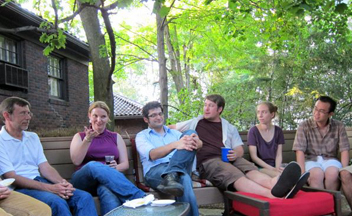

Staff
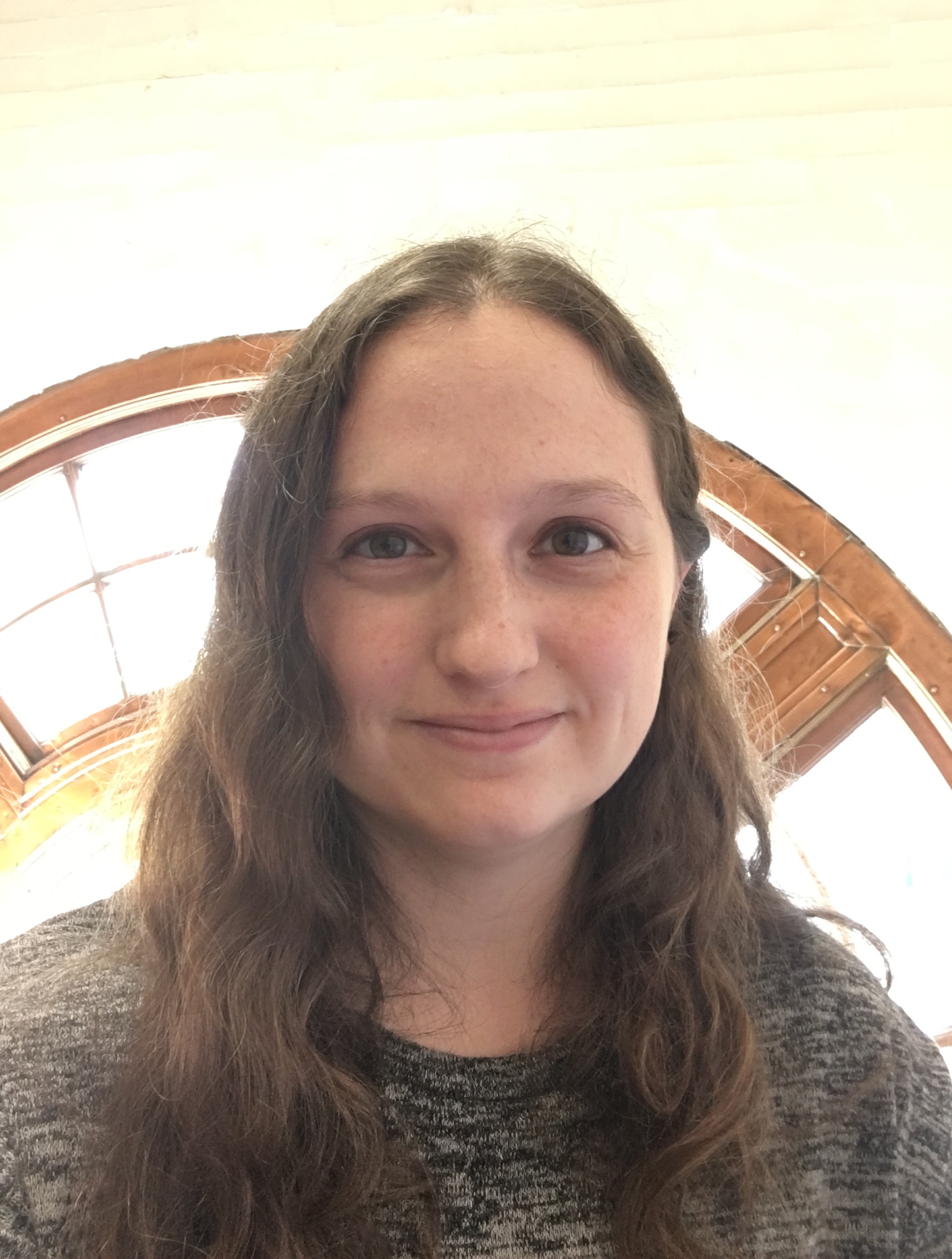 |
Maureen Hiltonis a Research Assistant for the CCBI. She received a B.S. degree in Cognitive and Brain Sciences from Tufts University and a B.F.A. degree from the School of the Museum of Fine Arts, Boston. Her previous research experience and interests include visual perception, attention, and linguistics. She plays a large role in the testing of fMRI participants and in analyses of fMRI and behavioral data.  Email
maureenh@cmu.edu Email
maureenh@cmu.edu
|
 | |
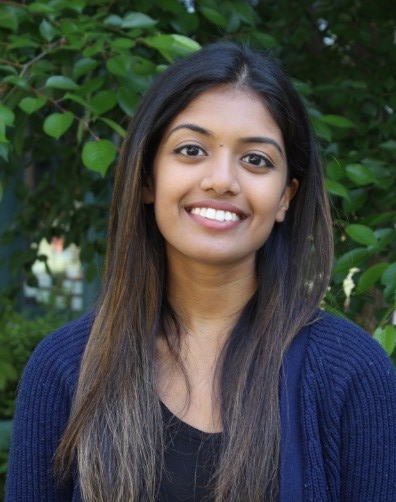 |
Sharina LallSharina Lall is a graduate of Carnegie Mellon University, with a B.S. in Cognitive Neuroscience and an M.S. in Biomedical Engineering. She is now a research associate with CCBI. She is involved with conducting the lab's fMRI and EEG experiments involved in identifying neural signatures for a variety of concepts, as well as analyzing the imaging data.  Email
slall@andrew.cmu.edu Email
slall@andrew.cmu.edu
|
 | |
 |
Elektra PetrakisElektra Petrakis is an undergraduate research assistant studying Cognitive Science with a concentration in Artificial Intelligence and minors in Human-Computer Interaction and Business Administration. At the CCBI, she is using Natural Language Processing (NLP) and machine learning to help identify individuals with suicidal thoughts and behavior. Previously she had worked at Columbia University’s Division of Molecular Imaging and Neuropathology assisting with updating their database of suicide victims’ brains.  Email
kpetraki@andrew.cmu.edu Email
kpetraki@andrew.cmu.edu
|
 | |
 |
Paulette Williamsa graduate of Geneva College with a B.S. in biology, is the Administrative Coordinator who provides administrative support for most of the projects. She has been a longstanding member of the CCBI playing a large role in its efficient administration.  Email
pwilliams@cmu.edu Email
pwilliams@cmu.edu
|

Former Post-Docs
 |
Augusto Buchweitz, Ph.D.Professor at the Pontifical Catholic University (PUCRS), Brazil and researcher at the Brain Institute (InsCer) at PUCRS. He is a former Post-Doctoral Fellow at the CCBI who worked on fMRI studies of bilingual text comprehension, neurosemantics, and multi-tasking.  Selected CCBI Publications:
CCBI publications list
Selected CCBI Publications:
CCBI publications list
Buchweitz, A., Mason, R. A., Tomitch, L. M. B., & Just, M. A. (2009). Brain activation for reading and listening comprehension: An fMRI study of modality effects and individual differences in language comprehension. Psychology & Neuroscience, 2, 111-123.
Buchweitz, A., Mason, R. A., Hasegawa, M., & Just, M. A. (2009). Japanese and English sentence reading comprehension and writing systems: An fMRI study of first and second language effects on brain activation. Bilingualism: Language and Cognition, 12, 141-151. |
 | |
 |
Cleotilde (Coty) Gonzalez, Ph.D.Research Professor in the Department of Social and Decision Sciences. Director of the Dynamic Decision Making Laboratory. She earned her Ph. D. from Texas Tech University. Her research goals are: to understand decision-making cognitive processes in complex, real-time, dynamic environments and to help people make better decisions in these situations. Her research is mainly behavioral, using realistic computer simulations. Other methods include computational cognitive modeling, eye tracking, and fMRI..  Email
coty@cmu.edu Email
coty@cmu.edu
 Selected CCBI Publications:
Selected CCBI Publications:
Gonzalez C., & Wimisberg, J. (2007). Situation awareness in dynamic decision-making: Effects of practice and working memory. Journal of Cognitive Engineering and Decision Making, 1(1), 56-74.
Cronin, M., & Gonzalez C. (2007). Understanding the building blocks of systems dynamics. Systems Dynamics Review, 23(1), 1-17. Gonzalez, C. (2005). Task workload and cognitive abilities in dynamic decision making. Human Factors, 47(1), 92-101. |
 | |
 |
Rajesh Kumar Kana, Ph.D.Professor at the University of Alabama and Director of its Autism Research Center. He is a former CCBI Post-Doctoral Fellow working on fMRI studies of autism. His primary research interest is to explore the neural substrates of social cognition and the impact of social cognition on language, communication and other cognitive functions in autism. He uses functional and structural MRI to study the neural architecture of autism.  Email
rkana@uab.edu Email
rkana@uab.edu
Kana, R.K., Keller, T.A., Minshew, N .J., & Just, M.A. (2007). Inhibitory Control in High Functioning Autism: Decreased Activation and Underconnectivity in Inhibition Networks. Biological Psychiatry, 62, 198-206.
Kana, R.K., Keller, T.A., Cherkassky, V.L., Minshew, N.J., & Just, M.A. (2006). Sentence comprehension in autism: thinking in pictures with decreased functional connectivity. Brain, 129(9), 2484-93. Keller, T.A., Kana, R.K., & Just, M.A. (2007). A developmental study of the structural integrity of white matter in autism. Neuroreport, 18(1), 23-27. |
 | |
 |
Hidetsugu (Hide) Komeda, Ph.D.Associate Professor at Aoyama Gakuin University in Tokyo. His Ph.D. is from Kyoto University, Japan. He has been working on fMRI and behavioral studies of cognitive, perceptual, and social processes in autism. He plans to spend his sabbatical year (starting April 2021) at the CCBI.  Email
komeda@ephs.aoyama.ac.jp Email
komeda@ephs.aoyama.ac.jp
 Selected CCBI Publications:
Selected CCBI Publications:
Rapp, D.N., Komeda, H., & Hinze, S.R. (2011). Vivifications of literary investigation. The Scientific Study of Literature, 1, 123-135.
Komeda, H., Kawasaki, M., Tsunemi, K., & Kusumi, T. (2009). Differences between estimating protagonists' emotions and evaluating readers' emotions in narrative comprehension. Cognition and Emotion, 23, 135-151. Komeda H, Kusumi T. (2006). The effect of a protagonist's emotional shift on situation model construction. Memory & Cognition, 34, 1548-1556. |
 | |
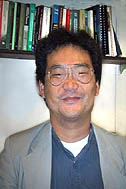 |
Hideya Koshino, Ph.D.Professor at California State University at San Bernadino. He is a former CCBI Post-Doctoral Fellow working in the area of attention, executive function, spatial information, and autism. He earned his Ph.D. from the University of Kansas.  Email
hkoshino@csusb.edu Email
hkoshino@csusb.edu
 Selected CCBI Publications:
CCBI publications list
Selected CCBI Publications:
CCBI publications list
Koshino, H., Carpenter, P. A., Cherkassky, V. L., Keller, T. A., & Just, M. A. (2005). Functional connectivity in an fMRI working memory task in high-functioning autism. NeuroImage, 24, 810-821.
Koshino, H., Carpenter, P. A., Keller, T. A., & Just, M. A. (2005). Interaction between the dorsal and ventral pathways in mental rotation: An fMRI study. Cognitive, Affective, & Behavioral Neuroscience, 5, 54-66. Koshino, H. (2001). Activation and inhibition of stimulus features in conjunction search. Psychonomic Bulletin & Review, 8 (2), 294-300. Koshino, H., Boese, G.A., & Ferraro, F.R. (2000). The relationship between cognitive abilities and positive and negative priming in identity and spatial tasks. Journal of General Psychology, 127(4), 372-382. |
 | |
 |
Yanni Liu, Ph.D.is Research Assistant Professor at the University of Michigan Psychiatry Department. She completed her PhD at the University of Michigan, Ann Arbor. Her doctoral research focused on the executive function and decision-making processes of normal people and OCD patients. She was using fMRI to investigate the perceptual superiority and executive dysfunction in Autism spectrum disorder.  Email
yanniliu@umich.edu Email
yanniliu@umich.edu
 Selected CCBI Publications:
Selected CCBI Publications:
Liu, Y., & Gehring, W. J. (2009). Loss Feedback Negativity Elicited by Single- vs. Conjoined-Feature Stimuli. Neuroreport, 20(6), 632-636.
Liu, Y., Shu. H. & Wei, J.(2006). Spoken word recognition in context: evidence from Chinese ERP analyses. Brain and Language, 96, 37-48. Liu, Y., & Shu, H. (2002). Developmental research on sublexical processing in Chinese character recognition. Chinese Journal of Applied Psychology, 8, 3-7. |
 | |
 |
Sharlene Newman, Ph.D.Director of the Alabama Life Research Institute at the University of Alabama. She earned her Ph.D. at the Biomedical Engineering Department of the University of Alabama at Birmingham and is a former CCBI Post-Doctoral Fellow. She spent many years as a faculty member at Indiana University. Her research interests are in the areas of fMRI of language processes, problem-solving, and planning.  Email
sdnewman@indiana.edu Email
sdnewman@indiana.edu
 Selected CCBI Publications:
CCBI publications list
Selected CCBI Publications:
CCBI publications list
Just, M. A., Newman, S. D., Keller, T. A., McElaney, A., & Carpenter, P. A.. (2004) Imagery in sentence comprehension: An fMRI study. NeuroImage.
Newman, S. D., Carpenter, P. A., Varma, S., & Just, M. A. (2003) Frontal and parietal participation in problem-solving in the Tower of London: fMRI and computational modeling of planning and high-level perception. Neuropsychologia, 41(12), 1668-1682. Newman, S. D., Just, M. A., Keller, T. A., Roth, J. & Carpenter, P. A. (2003) The differential effects of syntactic and semantic processing on the two subregions of Broca's area. Cognitive Brain Research, 16, 297-307. Newman, S. D., Just, M. A., & Carpenter, P. A. (2002) The synchronization of the human cortical working memory network. NeuroImage, 15, 810-822. Newman, S. D., Twieg, D., & Carpenter, P. A. (2001) Baseline conditions and subtractive logic in neuroimaging. Human Brain Mapping, 14, 228-235. |
 | |
 |
Susana Novais-Santos, Ph.D.is a former CCBI Postdoctoral Fellow. She obtained her first Master's in Computer Science and Engineering at Instituto Superior Técnico, Lisbon, Portugal. Susana then received an MSc in Engineering and Physical Science in Medicine at Imperial College of Science, Technology and Medicine, University of London, UK. She obtained her PhD in Bioengineering (Neuroengineering) at the University of Pennsylvania. Her areas of expertise are language processing, cognition, executive resources, strategic planning and decision-making.  Email
snovais@andrew.cmu.edu Email
snovais@andrew.cmu.edu
|
 | |
 |
Chantel Prat, Ph.D.Professor at the University of Washington, Seattle, with appointments in Psychology and at the Institute for Learning and Brain Sciences. Chantel is a former member of the CCBI. Her research investigates the nature of biological constraints on information processing, with an emphasis on the neural correlates of individual differences in language comprehension abilities. Her current research employs the combination of fMRI, TMS, DTI, and behavioral paradigms to investigate the neural basis of individual differences in language and cognition.  Email
csprat@u.washington.edu Email
csprat@u.washington.edu
 Selected Publications:
Selected Publications:
Prat, C. S., Mason, R. A., & Just, M. A. (2011). Individual differences in the neural basis of causal inferencing. Brain & Language, 116, 1-13.
Prat, C. S., & Just, M. A. (2011). Exploring the neural dynamics underpinning individual differences in sentence comprehension. Cerebral Cortex, 21, 1747-1760. Prat, C. S., & Just, M. A. (2008). Brain bases of individual differences in cognition. Psychological Science Agenda, Volume 22, Issue 5. (Online Newsletter of the American Psychological Association). Long, D. L., & Prat, C. S. (2008). Individual differences in syntactic ambiguity resolution: Readers vary in their use of plausibility information. /Memory and Cognition, 36(2), 375-391. Prat, C., Keller, T. A., & Just, M. A. (2007). Individual differences in sentence comprehension: A functional Magnetic Resonance Imaging investigation of syntactic and lexical processing demands. Journal of Cognitive Neuroscience, 19, 1950-1963. Prat, C. S., Long, D. l., & Baynes, K. (2007). The representation of discourse in the two hemispheres: An individual differences investigation. Brain Language, 100, 283-294. |
 | |
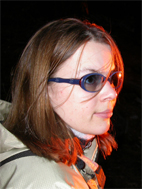 |
Svetlana Shinkareva, Ph.D.Assistant Professor at the University of South Carolina. She is a former CCBI Post-Doctoral Fellow. Dr. Shinkareva's research focuses on the development and application of quantitative methods to neuroimaging data. Her current interests include applying machine learning methods to fMRI data to study the neural basis of semantic knowledge representation.  Email
shinkareva@sc.edu Email
shinkareva@sc.edu
 Selected Publications:
Selected Publications:
Shinkareva, S.V., Mason, R.A., Malave, V.L., Wang, W., Mitchell, T.M., et al (2008). Using fMRI brain activation to identify cognitive states associated with perception of tools and dwellings. PLoS ONE 3(1): e1394.
Shinkareva, S.V., Ombao, H.C., Sutton, B.P., Mohanty, A., & Miller, G.A. (2006). Classification of functional brain images with a spatio-temporal dissimilarity map. NeuroImage, 33, 63-71. |
 | |
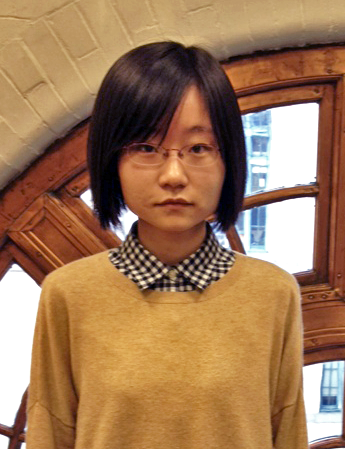 |
Jing Wang, Ph.D.was a CCBI postdoctoral associate. Her primary research interests were in the brain basis of conceptual representation, and the application of multivariate methods to neuroimaging and eye movement data. Her current work used fMRI and machine learning methods to investigate the knowledge representation in various semantic contexts. Jing received her PhD from the University of South Carolina. She is a Research Scientist in Liulishuo, an emerging AI+education company based in Shanghai.  Email
jingwanggold@gmail.com Email
jingwanggold@gmail.com
 Selected CCBI Publications:
Selected CCBI Publications:
Wang, J., Baucom, L.B., & Shinkareva, S.V. (2013) Decoding abstract and concrete concept representation based on single-trial fMRI data. Human Brain Mapping. 34: 1133-1147
Wang, J., Conder, J.A., Blitzer, D.N., & Shinkareva, S.V. (2010) Neural representation of abstract and concrete concepts: a meta-analysis of neuroimaging studies. Human Brain Mapping. 31: 1459-1468 Henderson, J.M., Shinkareva, S.V., Wang, J., Luke, S.G., & Olejarczyk, J. (2013) Predicting cognitive states from eye movements. PLoS ONE. 8: e64937. |
 | |
 |
Diane Williams, Ph.D.worked on behavioral and fMRI studies of cognitive and linguistic processing in individuals with autism under the mentorship of Dr. Just. She has a Research Career Development Award from the National Institute of Deafness and Other Communication Disorders. Dr. Williams completed her doctoral work at Bowling Green State University in Ohio in Speech-Language Pathology. She was a postdoctoral fellow with Dr. Nancy Minshew at the University of Pittsburgh, and continues to collaborate with Dr. Minshew on a number of studies with high-functioning adolescents and adults with autism. Dr. Williams has more than 30 years of clinical experience with individuals with autism. She is Department Head of Communication Sciences and Disorders at Penn State.  Email
dlw81@psu.edu Email
dlw81@psu.edu
 Selected CCBI Publications:
Selected CCBI Publications:
Minshew, N.J., & Williams, D.L. (2007). The new neurobiology of autism: Cortex, connectivity, and neuronal organization. Archives of Neurology, 67, 945-950.
Williams, D.L., Goldstein G., Minshew N.J. (2006). Neuropsychologic functioning in children with autism: Further evidence of disordered complex information processing. Child Neuropsychology, 12, 279-298. Williams, D.L., Goldstein G., Minshew N.J. (2006). Profile of memory function in children with autism. Neuropsychology, 20, 21-29. Williams, D.L., Goldstein G., Carpenter, P.A, Minshew N.J. (2005). Verbal and spatial working memory in autism. Journal of Autism and Developmental Disorders. Williams, D.L., Goldstein G., & Minshew N.J. (2005). Impaired memory for faces and social scenes in autism: Clinical implications of the memory disorder. Archives of Clinical Neuropsychology, 20, 1-15. |
 | |
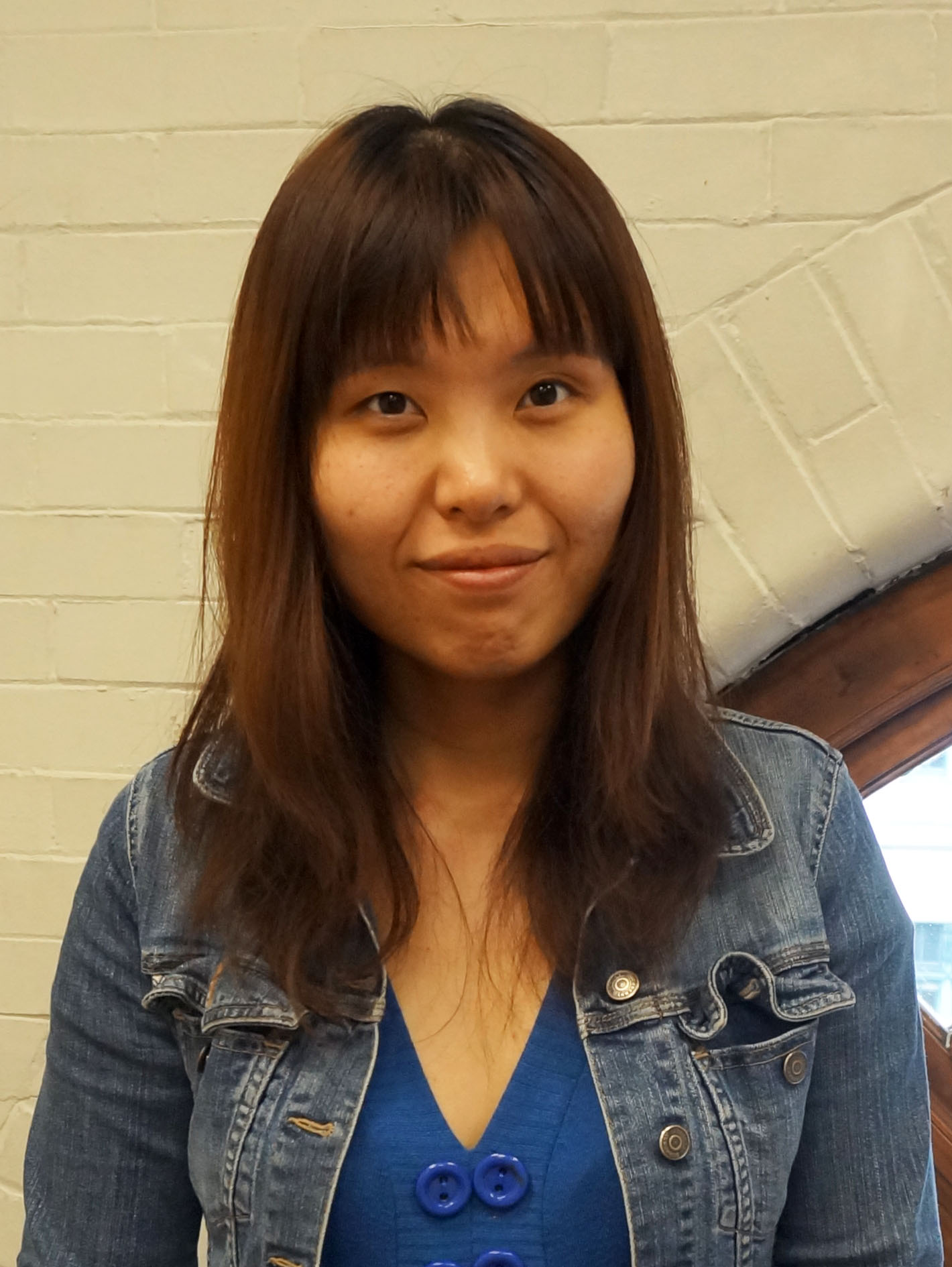 |
Ying Yang, Ph.D.was a postdoctoral associate at the Center for Cognitive Brain Imaging. She received her Ph.D. in 2012 from the University of Pittsburgh working with Connie Tompkins. She worked in a brain-computer interface lab at the University of Pittsburgh, focusing on neural representations of physical actions in motor-related areas. Her CCBI research focused on decoding sentences in several languages from their fMRI signature. She is the Scientific Director of a large private educational corporation, TAL, in China.  Email
yingyang001@100tal.com Email
yingyang001@100tal.com
|
